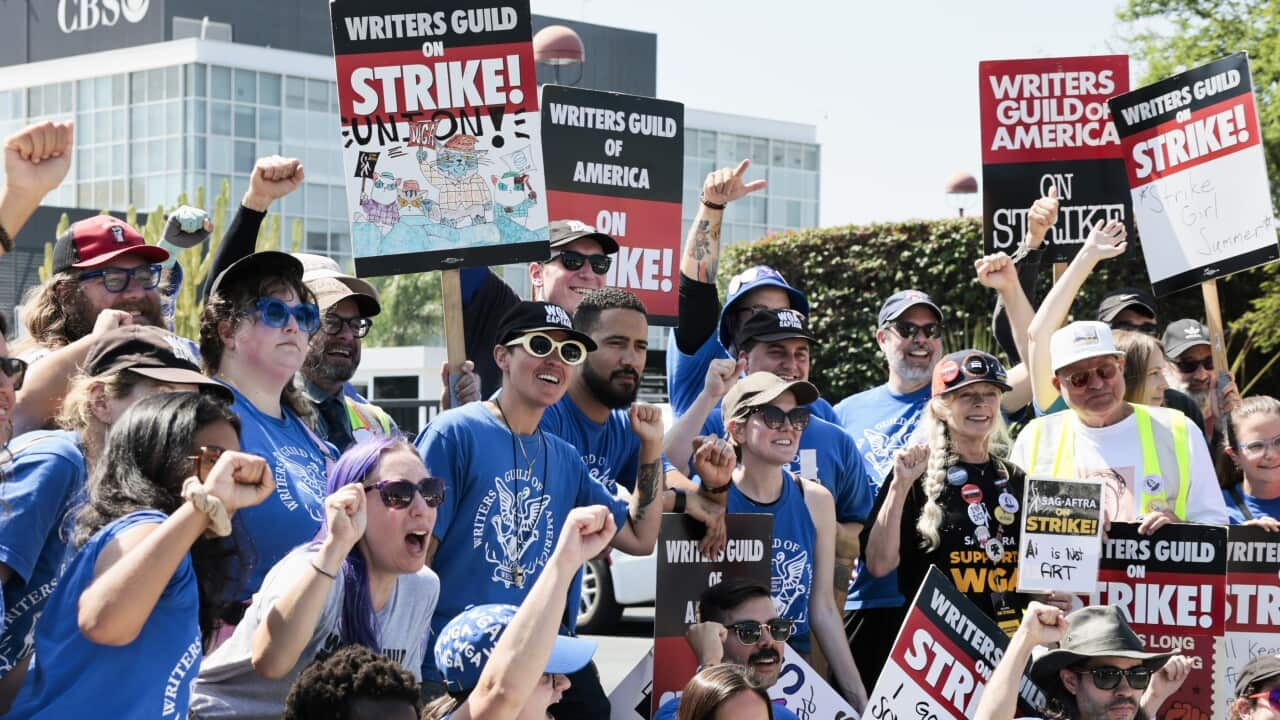Tens of thousands of healthcare workers in the United States walked off the job Wednesday, beginning one of the sector's largest strikes in recent history, as America's year of labour discontent rolled on.
The walkout of more than 75,000 workers at Kaiser Permanente, the country's largest non-profit healthcare organization, comes as surging inflation has spurred industrial action across the US, from Hollywood actors to Detroit auto workers.
People on the picket lines in Los Angeles on Wednesday said they were underpaid and overworked.
Healthcare workers say they're 'at the precipice'
"Ever since the pandemic hit, we lost a lot of members and we never recovered them," X-ray technician Armando Velasco told AFP.
"And now we're at the brink, we’re at the precipice."
Nurse Kathy Lozoya said the rocketing cost of living in southern California was making life very difficult.
"Kaiser Permanente has reported billions of dollars in profits, so all we're asking from Kaiser CEOs is to share those profits with the frontline workers," she said.
"All we're asking is a fair contract so that we can be able to live."
Kaiser Permanente locations in Washington DC, Virginia, California, Colorado, Oregon and Washington state were expected to be affected by the three-day strike.
Kaiser said centres would remain open, but warned there would be "longer-than-usual" wait times.

Kaiser Permanente healthcare workers rally outside Kaiser Permanente Los Angeles. Source: AP / Damian Dovarganes
"Several agreements over specific provisions have been reached" with the Coalition of Kaiser Permanente Unions, the spokesman said, adding negotiators were prepared to meet around the clock "until we reach a fair and equitable agreement".
The union, which says this will be the largest healthcare worker strike in US history, is pushing for pay increases and protections against subcontracting and outsourcing of labour.
It has threatened to engage in further strike action in November "if Kaiser continues to commit unfair labour practices."
Wednesday's strike comes during a year in which the US has seen an unusually high level of industrial action as workers struggle with inflation levels not seen in a generation.
Higher prices have reduced the purchasing power of shoppers across the country, while the rise of generative artificial intelligence (AI) has led to concerns about the automation of growing numbers of jobs.
Industrial action is ongoing in Detroit, where the United Auto Workers (UAW) union is engaged in its first-ever joint strike action against the "Big Three" auto makers - GM, Ford and Chrysler maker Stellantis - in a push for higher pay and better working conditions.
More than 25,000 workers are on strike in 21 states - around 17 per cent of UAW's 146,000 members - as talks continue.
In Hollywood, a months-long joint strike by writers and actors brought California's lucrative film industry to a halt, stopping production and broadcast of major movie and TV productions.
While the writers have since agreed on a deal to return to work, actors represented by the SAF-AFTRA union were on the picket lines Wednesday, even as their negotiators met with studios for a second full day of talks.













